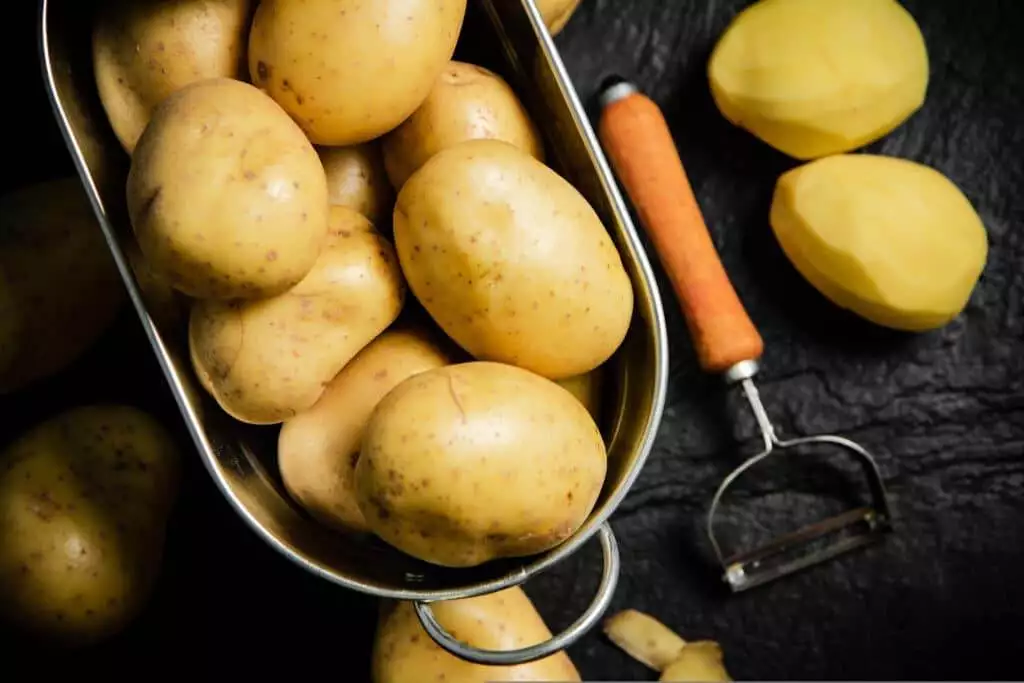The role of potatoes in nutrition has always been complex. As the main ingredient of baked potatoes with cheese and butter, mashed potatoes, and fries, they are a favorite comfort meal for certain people. Some see them as a starchy villain and are often grouped with refined carbohydrates. Many people have been wondering, “Are potatoes good for you?” as a result of their mixed reputation. The answer isn’t as straightforward as yes or no; it depends on how they are cooked, portioned, and eaten in a balanced diet.
The Potato’s Nutritious Value
Potatoes are fundamentally entire foods that are high in nutrients. In addition to being naturally low in fat, cholesterol, and salt, a medium-sized potato contains around 110 calories. They are a great source of dietary fiber, potassium, vitamin B6, and vitamin C (particularly when eaten with the skin).
The following are important nutrients in potatoes:
- Vitamin C: Promotes immunity and also acts as an antioxidant.
- Potassium: Potassium regulates blood pressure. It also supports muscle and nervous function.
- Fiber: Contributes to digestive health and satiety.
- Complex carbohydrates: They provide energy that is sustained, which is important for athletes.
If you look at potatoes through this lens, it becomes clear that they are not a source of “empty caloric calories.” Instead, potatoes can contribute to the creation of a healthful diet.
Myth 1: Carbs Are “Unhealthy” In Potatoes
One of the most common misunderstandings regarding potatoes is that they are the same as processed carbohydrates. In spite of their high carbohydrate content, potatoes digest more slowly than refined grains because they contain complex carbohydrates. As a result, they provide consistent energy instead of a quick sugar rush.
The variety and cooking technique of potatoes really affect their glycemic index (GI). For instance, skin-on boiled or roasted potatoes have a low GI, while processed foods or additional fats might make mashed potatoes or fries score higher.
Myth 2: Potatoes Cause Weight Gain
By themselves, potatoes don’t cause weight gain. The preparation techniques, such as frying them in oil or stuffing them full of cheese, sour cream, and butter, are what contribute extra calories and bad fats. The calories in a basic baked potato are rather modest, particularly when contrasted with processed snack items.
When consumed in moderation and cooked appropriately, potatoes may be a component of a weight-management strategy, according to many studies. Because they are satisfying, potatoes may help you avoid overeating by encouraging satiety, which lowers your total caloric intake.
Myth 3: There’s Never A Better Sweet Potato
Though both have important nutritional characteristics, sweet potatoes are sometimes hailed as the “healthier” relative of white potatoes. Beta-carotene, an antioxidant that transforms into vitamin A, is abundant in sweet potatoes, although white potatoes contain somewhat more protein and greater potassium levels.
Both varieties are beneficial when included in a well-balanced diet. Choosing between them is often based on personal taste preferences and dietary requirements rather than on which is generally superior.
The Significance Of Being Ready
Are potatoes good for you? The actual answer to that question is in how they are cooked. The following are a few of the healthiest ways to eat potatoes:
- Baked or roasted with little spice or oil.
- Steam or boil with the peel on to retain the nutrients and fiber.
- Mashed with herbs, Greek yogurt, or olive oil rather than butter and heavy cream
- Air-fried fries are lighter than deep-fried ones.
You may enjoy potatoes’ health advantages without consuming extra calories or bad fats by avoiding over-frying and hefty toppings.
A Well-Balanced Diet With Potatoes
Numerous dietary regimens, such as vegetarian, vegan, and gluten-free diets, may include potatoes. Because they are naturally gluten-free, they are a great substitute for those who have gluten sensitivity or celiac disease.
Together with veggies, lean meats, and healthy fats, potatoes provide a filling and well-balanced meal ingredient. For example, a baked potato with steamed broccoli and grilled chicken on top is a satisfying and healthy meal.
Conclusion
Potatoes have unjustly acquired a negative name because of their connection to calorie-dense toppings and fried fast food. But when made easily and eaten sparingly, they are nutrient-dense, adaptable, and healthy. They provide vital nutrients, vitamins, and fiber that promote general well-being.
Are potatoes good for you, then? Yes, if you consume them as they are and in combination with other healthful meals. Pay attention to quantities and preparation techniques rather than cutting them out of your diet. When prepared properly, potatoes may bring flavor, affordability, and health to your meals.

